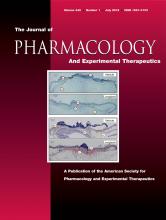Abstract
A pathway of research is described, leading from the finding of an inhibitory effect of 3-methylcholanthrene on the carcinogenicity of an aminoazo dye, to the induction of drug-metabolizing enzymes by 3-methylcholanthrene, benzo[a]pyrene, and other polycyclic aromatic hydrocarbons, to the demonstration of enhanced drug metabolism in cigarette smokers, coffee drinkers, and people who eat charcoal-broiled beef. The results of these studies indicate that cigarette smoking, coffee drinking, and the ingestion of charcoal-broiled beef (all resulting in exposure to polycyclic aromatic hydrocarbons) can influence the dosing regimen needed for proper drug therapy and are potential confounders of clinical trials with drugs metabolized by polycyclic aromatic hydrocarbon-inducible enzymes.
Footnotes
Article, publication date, and citation information can be found at http://jpet.aspetjournals.org.
ABBREVIATIONS:
- PAH
- polycyclic aromatic hydrocarbon
- BP
- benzo[a]pyrene
- 3-MC
- 3-methylcholanthrene
- 3-methyl-AB
- 3-methyl-4-aminoazobenzene
- FU
- 5-fluorouracil.
- Received February 17, 2012.
- Accepted April 17, 2012.
- Copyright © 2012 by The American Society for Pharmacology and Experimental Therapeutics
JPET articles become freely available 12 months after publication, and remain freely available for 5 years.Non-open access articles that fall outside this five year window are available only to institutional subscribers and current ASPET members, or through the article purchase feature at the bottom of the page.
|






